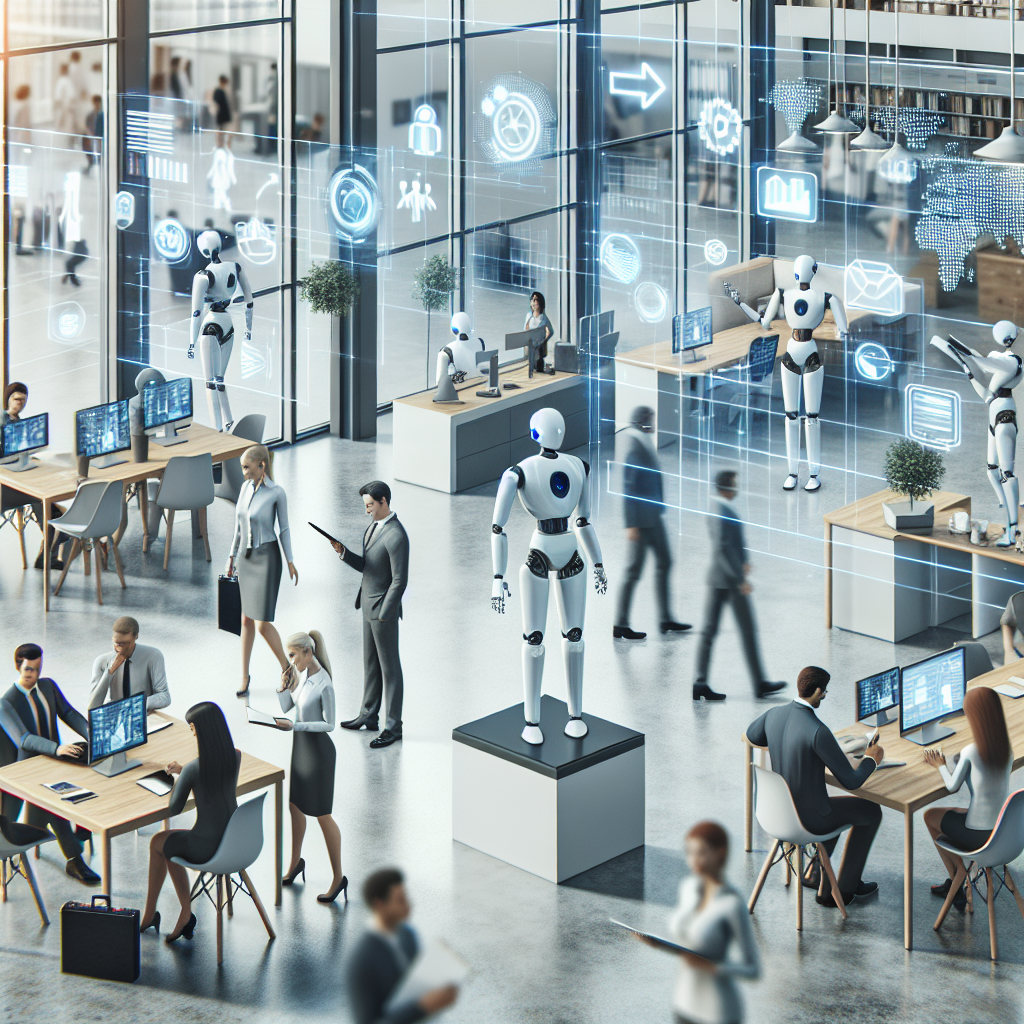AGI in the Workplace: How Advanced AI is Changing the Nature of Work
Artificial General Intelligence (AGI) is a term used to describe the capability of a machine to perform any intellectual task that a human can do. This advanced form of AI has the potential to revolutionize the way we work, making tasks more efficient, accurate, and faster than ever before. As AGI continues to evolve, its impact on the workplace is becoming increasingly evident. In this article, we will explore how AGI is changing the nature of work and what this means for the future of employment.
The Rise of AGI in the Workplace
AGI is already being used in a variety of industries, from healthcare to finance to retail. In healthcare, AGI can analyze medical images and data to help doctors diagnose diseases more accurately and quickly. In finance, AGI can analyze market trends and make investment decisions with greater precision than human traders. In retail, AGI can predict customer preferences and personalize shopping experiences to increase sales.
The rise of AGI in the workplace is driven by the increasing availability of data and computing power, as well as advances in machine learning algorithms. These technologies allow machines to learn from data and improve their performance over time, making them more capable of performing complex tasks that previously required human intelligence.
How AGI is Changing the Nature of Work
One of the key ways that AGI is changing the nature of work is by automating routine tasks that were previously done by humans. This includes tasks such as data entry, customer service, and basic analysis. By automating these tasks, AGI can free up human workers to focus on more complex and creative work that requires human intelligence.
AGI is also changing the nature of work by enabling new ways of working. For example, AGI can be used to analyze large amounts of data and generate insights that can inform decision-making. This allows organizations to make more informed decisions faster than ever before, giving them a competitive edge in the marketplace.
AGI is also changing the nature of work by creating new job opportunities. As AGI continues to evolve, new roles are emerging that require a combination of technical skills and human judgment. For example, organizations are hiring data scientists and AI engineers to develop and deploy AGI systems, as well as AI ethicists to ensure that these systems are used ethically and responsibly.
Frequently Asked Questions about AGI in the Workplace
Q: Will AGI replace human workers?
A: While AGI has the potential to automate many routine tasks, it is unlikely to completely replace human workers. Instead, AGI is more likely to augment human workers by freeing them up to focus on more complex and creative work.
Q: Will AGI create new job opportunities?
A: Yes, as AGI continues to evolve, new job opportunities are emerging that require a combination of technical skills and human judgment. For example, data scientists, AI engineers, and AI ethicists are in high demand as organizations seek to develop and deploy AGI systems.
Q: How can organizations prepare for the rise of AGI in the workplace?
A: Organizations can prepare for the rise of AGI in the workplace by investing in training and upskilling their workforce. This includes developing technical skills related to AI and machine learning, as well as soft skills such as creativity, critical thinking, and emotional intelligence.
Q: What are the ethical implications of AGI in the workplace?
A: The rise of AGI in the workplace raises important ethical questions related to privacy, bias, and accountability. Organizations must ensure that AGI systems are used ethically and responsibly, and that they do not discriminate against certain groups or individuals.
In conclusion, AGI is changing the nature of work in profound ways, from automating routine tasks to creating new job opportunities. As AGI continues to evolve, organizations must adapt to this new reality by investing in training and upskilling their workforce, as well as addressing important ethical considerations. By embracing AGI in the workplace, organizations can unlock new levels of efficiency, innovation, and competitiveness in the digital age.

